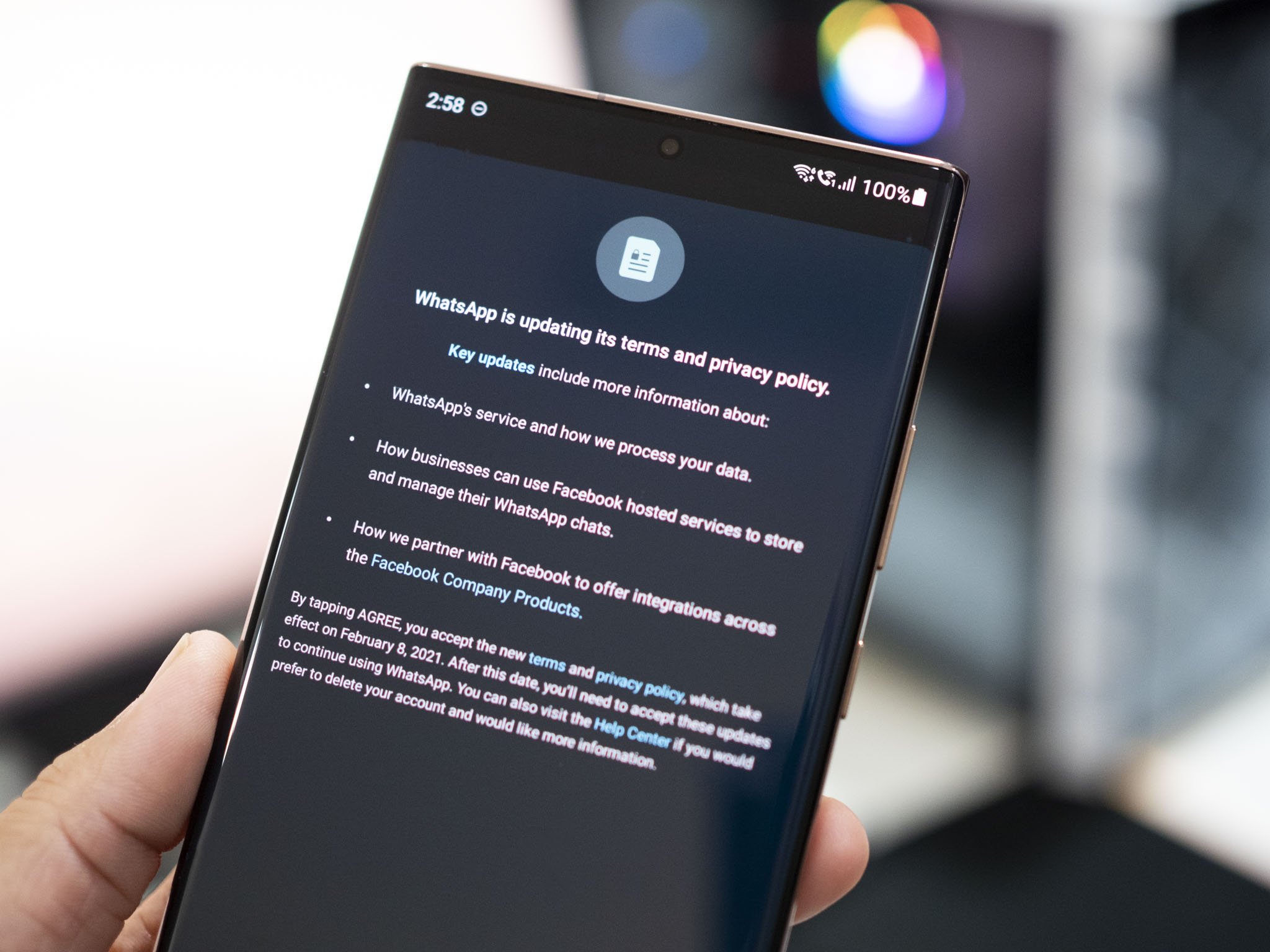WhatsApp now requires you to share data with Facebook — here's what you need to know

Get the latest news from Android Central, your trusted companion in the world of Android
You are now subscribed
Your newsletter sign-up was successful
Facebook acquired WhatsApp back in February 2014 for a staggering $19 billion. At that time, the service had 500 million users; it now boasts over 2 billion users today.
Facebook tried a lot of methods to monetize WhatsApp over the years, introducing business accounts to allow brands to chat with customers and even turning the platform into an e-commerce destination. That said, the app was left as its own entity, and Facebook didn't meddle too much into the core service itself.
That's changing now. WhatsApp has updated its privacy policy, and the new terms requires users to share data with Facebook as well as its associated companies, including Facebook Payments, Onavo (a web analytics service and controversial VPN), and CrowdTangle (a social analytics tool). The data that will be shared with Facebook and its companies as part of the new terms includes the following:
- Profile name
- Profile picture
- IP address
- Your phone number and contacts list
- App logs
- Status messages
From WhatsApp:
As part of the Facebook Companies, WhatsApp receives information from, and shares information (see here) with, the other Facebook Companies.We may use the information we receive from them, and they may use the information we share with them, to help operate, provide, improve, understand, customize, support, and market our Services and their offerings, including the Facebook Company Products.
This is the exact move that WhatsApp co-founder Jan Koum said the service wouldn't make following news of the Facebook acquisition:
Respect for your privacy is coded into our DNA, and we built WhatsApp around the goal of knowing as little about you as possible: You don't have to give us your name and we don't ask for your email address. We don't know your birthday. We don't know your home address.We don't know where you work. We don't know your likes, what you search for on the internet or collect your GPS location. None of that data has ever been collected and stored by WhatsApp, and we really have no plans to change that.
But that stance changed in 2016, when WhatsApp started sharing data with Facebook. Users could opt out of doing so at the time, but that is no longer an option. If you're a WhatsApp user and don't agree to the new terms, you won't be able to use the app after February 8. For what it's worth, Koum left Facebook in 2018 following disagreements around data gathering and privacy.
You won't be able to use WhatsApp after February 8 if you don't agree to share data with Facebook.
So why is WhatsApp changing its policy now? The answer is simple: ads. Facebook is intent on turning WhatsApp into an e-commerce service, and it is running trials in India with Jio for the same.
Get the latest news from Android Central, your trusted companion in the world of Android
The new privacy policy allows Facebook and its partners to tailor ads based on your interactions with businesses on the platform. The fact that there's no way to opt out of the data sharing is unfortunate, and it means you'll have to look for an alternative service. WhatsApp gained momentum because of its end-to-end encryption and exhaustive feature-set, and it is sad to see the service go down this route.
I use WhatsApp every single day to talk to friends and family, interact with PR folks, get updates from my bank, new show alerts from Netflix, and so much more. WhatsApp is so intertwined into the fabric of the internet in countries like India that it's not possible to dissociate from the service. Facebook knows this very well, and that may have been one of the main motivators behind the policy shift.
If you're in a position to switch away from WhatsApp, now is the time to do so. Signal is a great alternative, and it uses the same encryption protocol as WhatsApp. There's also Telegram if you need a more feature-rich platform.

Harish Jonnalagadda is Android Central's Senior Editor overseeing mobile coverage. In his current role, he leads the site's coverage of Chinese phone brands, networking products, and AV gear. He has been testing phones for over a decade, and has extensive experience in mobile hardware and the global semiconductor industry. Contact him on Twitter at @chunkynerd.
